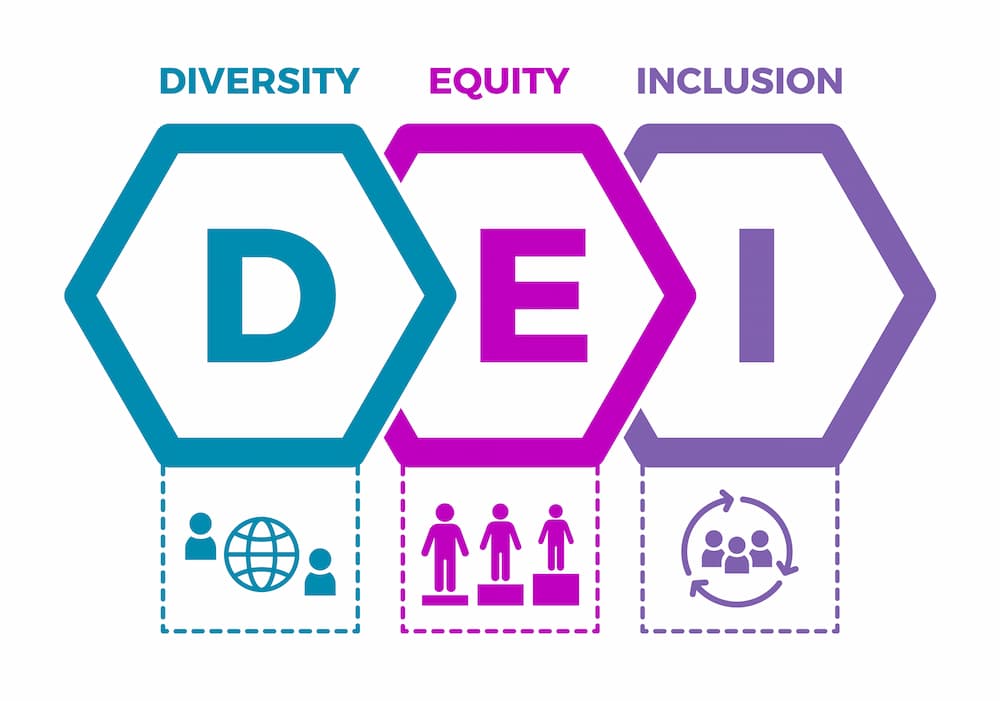DEI vs. merit? I’m proof that it’s not either/or
Previously published on HR Exectuive
When President Donald Trump delivered his inaugural address, he signaled what some gleefully saw as the beginning of the end for diversity, equity and inclusion. His administration’s stance suggested that DEI initiatives had overshadowed merit, fueling a broader debate that continues to ripple through corporate America today.
In the wake of this, major companies like Meta have followed suit, recently announcing the end of their DEI programs. These decisions aren’t just policy shifts; they represent a significant setback for individuals who have historically been excluded or marginalized in the workplace.
On the surface, I might appear to be a DEI hire. I built my career in business before diversity, equity and inclusion programs became the norm in corporate America. Early in my career, as a Black woman with an unseen disability, I knew all too well how stacked the deck was against me. Without leaders who looked beyond familiar networks and opened hiring processes to all, I would not be here. I still had to work harder, stay longer and prove myself more often just to be considered.
Worse yet, I often had to downplay my knowledge and skills to appease those in leadership or risk losing my job. I’ve had credit stolen, ideas dismissed and doors closed—experiences that remain all too common for women today. So, when people suggest that the programs that finally helped me be seen mean I wasn’t qualified, it’s more than disheartening—it’s infuriating. It diminishes the years of grit, talent and perseverance I’ve poured into earning my place at the table.
“When you’re used to privilege,” as the saying goes, “equality feels like oppression.” This perfectly captures the growing backlash against DEI initiatives. The truth is, many people still don’t understand what DEI is really about. It’s not about hiring people because they look different; it’s about hiring people because they are qualified.
Inclusive hiring doesn’t mean settling for less—it means expanding the talent pool and recognizing that opportunity was never evenly distributed in the first place. DEI doesn’t replace merit; it reveals it by ensuring that no one is left behind due to outdated hiring practices or unconscious biases.
What DEI really means—and what it doesn’t
DEI is often misunderstood as being solely about race, gender or identity, but it’s much broader than that. It’s about creating opportunities for everyone—whether it’s someone re-entering the workforce at 50, a parent returning to work, a veteran transitioning to a civilian career or someone without a degree but with the skills to excel.
Programs that benefit all employees—such as maternity and paternity leave, flexible work and mental health support—exist because of DEI. It’s about seeing uniqueness and potential, not limitations, and building workplaces that reflect the full range of talent available.
The notion that DEI takes opportunities away from some to give to others is a misunderstanding of its intent. DEI was never about handing out jobs based on appearance or identity, or about checking a box. The intent has always been to acknowledge that talent can come from anywhere, and in many forms. Those who feel like they’re “losing their place” aren’t being pushed aside; they’re facing a more level playing field where everyone’s abilities are considered. Some, who feel like they are victims of DEI programs, are likely worried that they cannot compete on their own merits. True DEI isn’t a separate initiative—it’s a smarter, more inclusive way of doing business every day.
DEI gives one the power of being seen
Looking at my own experience, it wasn’t until I had a leader who chose to see my potential that my career finally started to advance. When he recognized that I was being overlooked despite doing impactful work, he gave me visibility and an opportunity to demonstrate my strengths. That leader didn’t give me a handout. He gave me a chance.
That’s what DEI is all about: opening closed doors, not just for the sake of representation, but to tap into the incredible potential of those who have been overlooked or pushed aside. The goal is to build teams that are not just diverse in appearance but diverse in thought, experience and perspective.
When companies dismantle DEI programs, they create cultures that favor people who look, think and act like those already in power. This creates blind spots and perpetuates inequality. Worse, it sends a clear message to employees from underrepresented groups: “You don’t belong here.”
Actions that drive inclusion
Leaders who are committed to fairness must rise above this trend. You don’t need a formal DEI program to promote equity, but you do need intention. Conducting regular pay audits, removing bias in hiring and supporting employee growth through mentorship are actionable steps leaders can take to build inclusive workplaces.
Consider these steps:
- Audit your hiring practices to identify and eliminate bias.
- Implement blind resume reviews to ensure objective decision-making.
- Train hiring managers to move beyond the “lookalike candidate” mindset and embrace the value of hiring individuals who look different, think differently and come from different backgrounds.
- Ensure every employee has equal access to growth and advancement opportunities.
- Listen to your employees—understand their challenges, aspirations and the barriers they face.
- Most importantly, stop politicizing issues that directly affect people’s lives and livelihood. True leadership is about standing up for what’s right, not for what’s trending.
Treating people fairly shouldn’t be up for debate—it should be the norm. The truth is, no one wants to need DEI programs. In an ideal world, fairness would be second nature, and no one would have to march for their rights or rely on policies to ensure equal opportunities. But the reality is, we’re not there yet.
Until that day comes, we have a responsibility to actively create the world we want to see—one where equity isn’t seen as a threat, but as an opportunity. It’s an opportunity to build stronger teams, foster innovation and create spaces where everyone can thrive.


